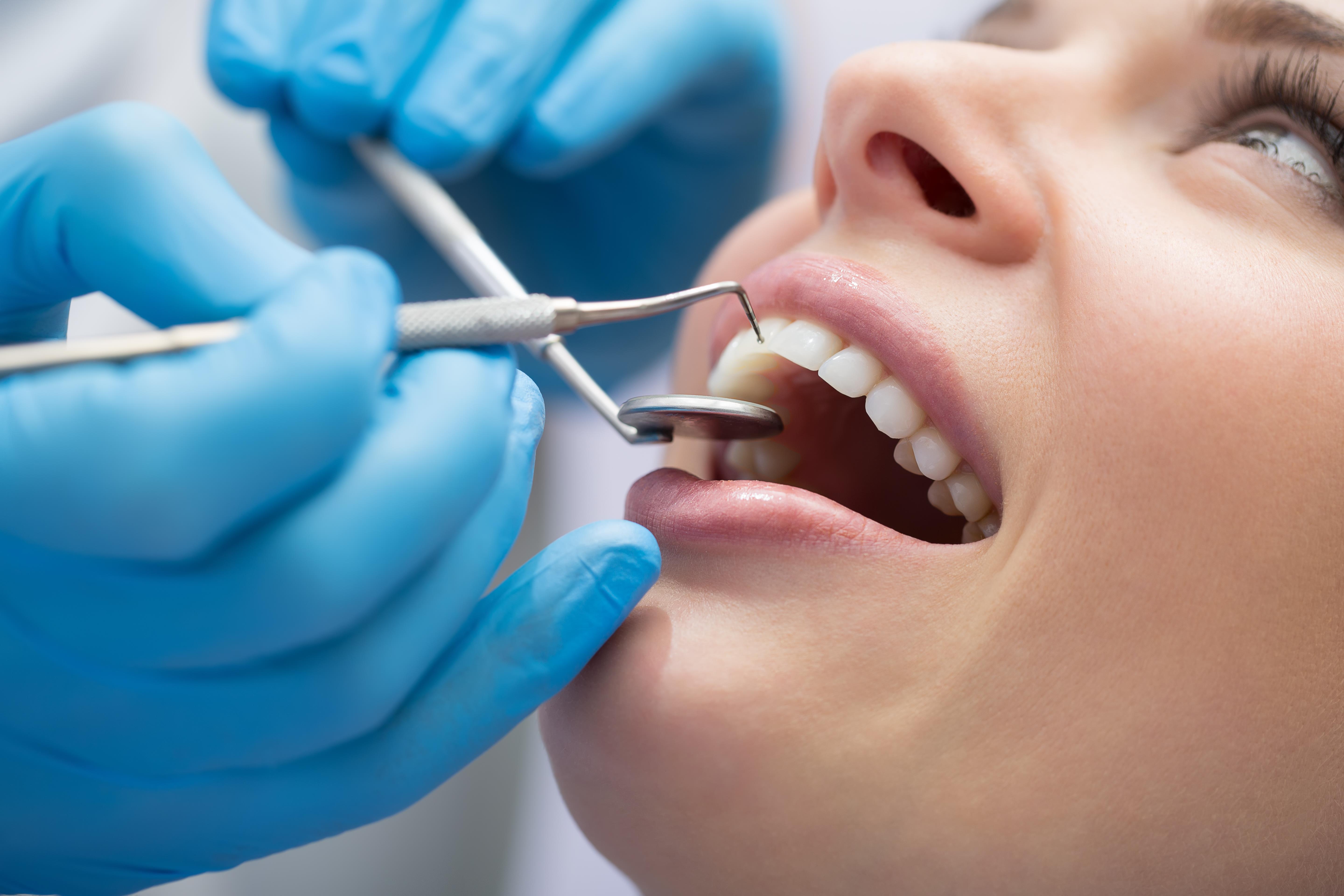Essential Dental Treatment Procedures for Keeping Healthy Teeth and Gums
Keeping optimum dental health is crucial for total wellness, and recognizing necessary dental care treatments is the initial action toward achieving this objective. Routine dental exams and specialist cleanings play a critical function in the early discovery of prospective concerns, while everyday practices such as cleaning and flossing are fundamental for combating plaque and food fragments. Moreover, nutritional options considerably affect the health and wellness of periodontals and teeth. As we explore these treatments and their implications, it comes to be apparent that disregarding any type of facet may bring about unanticipated complications. What various other elements should be considered for comprehensive oral care?
Regular Oral Examinations
Regular dental exams are important for keeping optimal oral wellness and stopping potential concerns. These appointments commonly take place every 6 months and offer multiple purposes, including the very early discovery of oral troubles such as dental caries, gum tissue condition, and dental cancer cells. By recognizing these concerns at their beginning, individuals can gain from much less intrusive therapies and boosted end results.

Furthermore, routine exams offer a possibility for oral professionals to supply tailored recommendations on oral hygiene methods, nutritional selections, and lifestyle adjustments that can boost overall oral wellness. Establishing a regimen of regular examinations cultivates a positive approach to dental treatment, equipping people to take charge of their dental wellness and eventually bring about a brighter, healthier smile. Ignoring these vital visits can cause much more extreme complications, highlighting their importance in precautionary dental treatment.

Professional Cleansings
A crucial element of maintaining dental wellness is the specialist cleaning done by a dental hygienist. These cleanings, usually recommended every 6 months, are necessary for the avoidance of dental issues such as dental caries and periodontal condition. Emergency Dentist DC. During an expert cleansing, the hygienist utilizes specialized devices to eliminate plaque and tartar build-up from the teeth and along the periodontal line, locations that regular cleaning may miss
The procedure starts with a complete evaluation of the mouth. Following this, the hygienist makes use of a scaler to thoroughly scrape away set plaque. This is typically adhered to by a polishing therapy with a sandy tooth paste, which assists to get rid of surface area discolorations and smooth the enamel. Lastly, the hygienist may use a fluoride treatment to strengthen the teeth and supply additional security against degeneration.
Specialist cleansings not only improve the visual appeals of your smile yet also considerably add to total dental health and wellness. They permit very early detection of prospective issues, making it possible for timely intervention. By prioritizing these cleanings, people can make certain that their dental health routine is complemented by expert treatment, inevitably bring about much healthier periodontals and teeth.
Daily Brushing Methods
Efficient day-to-day cleaning strategies are essential for keeping optimal oral health and wellness. Cleaning your teeth at the very least two times a day, preferably in the early morning and prior to going to bed, is crucial for removing plaque and preventing cavities. Choose a soft-bristled toothbrush that fits comfortably in your hand and allows easy access to all areas of your mouth.
When brushing, hold the toothbrush at a 45-degree angle to your gums. This setting assists to clean up not only the teeth however also the gumline, where plaque can build up. Use gentle, circular motions instead of aggressive back-and-forth strokes, which can hurt the periodontals and enamel. Make certain to clean for a minimum of 2 mins, investing equal time on each quadrant of your mouth.
Do not neglect to clean the inner surface areas of your teeth, in addition to your tongue, to eliminate microorganisms and refresh your breath. If the bristles are torn, change your toothbrush every 3 to four months or earlier. In addition, take into consideration utilizing fluoride toothpaste to reinforce enamel and decrease the threat of decay. Establishing a constant brushing regimen Recommended Reading will significantly add to the long-term wellness of your gum tissues and teeth.
Reliable Flossing Methods
Flossing is an important part of an extensive dental hygiene routine, playing a critical function in getting rid of food particles and plaque from areas that a tooth brush can not get to. Effective flossing techniques can significantly improve the wellness of your periodontals and teeth, protecting against tooth cavities and periodontal condition.
To begin, utilize around 18 inches of oral floss, winding the ends around your middle fingers, enabling for far better control. Hold the floss tightly between your thumbs and index fingers, carefully leading it between your teeth with a sawing motion. Prevent breaking the floss, as this can create gum tissue damages.
Once the floss reaches the gum line, curve it into a C form versus one tooth and slide it underneath the gum tissue line delicately, ensuring to clean up both sides of the tooth. Repeat this process for every tooth, utilizing a tidy area of floss as you relocate from one tooth to the following.
It is advisable to floss a minimum of daily, ideally before cleaning, to make best use of plaque elimination. Including reliable flossing strategies right into your dental hygiene routine will add to total oral health and wellness, making it a crucial method for preserving healthy teeth and gums.
Nutritional Considerations for Oral Wellness
Countless researches demonstrate that nutritional considerations play a pivotal duty in preserving oral health and preventing oral problems. A well-balanced diet abundant in necessary nutrients is essential for the development and upkeep of healthy and balanced teeth and periodontals. Key vitamins and minerals, such as phosphorus, vitamin, and calcium D, contribute dramatically to the toughness of tooth enamel and the general integrity of the mouth.
Foods high in anti-oxidants, like fruits and vegetables, improve gum wellness by minimizing inflammation and combating oxidative stress and anxiety. Moreover, sufficient hydration is crucial; water not just helps in the manufacturing of saliva, which neutralizes acids and gets rid of food particles, yet also help in maintaining a well balanced dental microbiome.
Conversely, extreme intake of acidic and sugary foods can bring about tooth decay and erosion. Restricting these foods, along with practicing great dental hygiene, is vital for oral health. Furthermore, integrating foods high in fiber can boost saliva production, which is useful for dental wellness. Hence, a holistic method that consists of conscious nutritional selections can significantly add to the prevention of dental issues and the promo of total dental well-being.
Final Thought

These appointments typically take place every 6 months and serve multiple objectives, including the early detection of dental problems such as tooth cavities, periodontal illness, and oral cancer.During a check-up, a dental professional conducts a detailed my blog exam of the teeth, gum tissues, and bordering dental frameworks.Moreover, routine examinations offer a chance for dental professionals to offer tailored suggestions on dental health methods, dietary choices, and lifestyle alterations that can boost overall oral wellness.In recap, preserving healthy teeth and periodontals requires adherence to essential oral care procedures. Normal oral check-ups and professional cleanings assist in early discovery of oral issues and the elimination of plaque and tartar, specifically.